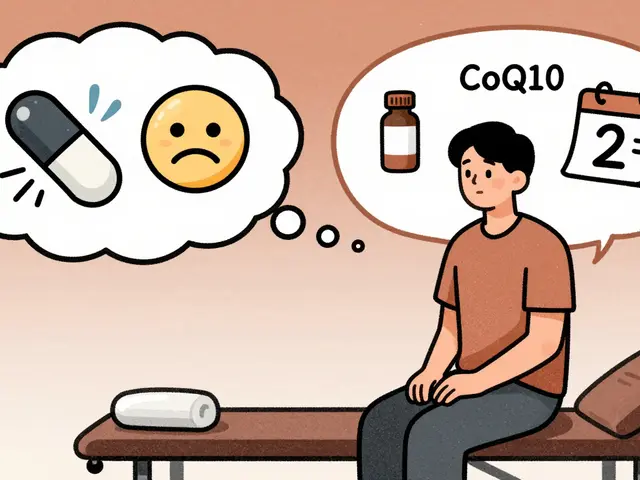Trimipramine prescription: what you need to know
Trimipramine is a tricyclic antidepressant sometimes used for depression and short-term sleep problems. If your doctor suggests it, you’ll want clear facts: why it’s chosen, how dosing works, and what safety checks are needed before and during treatment. This page gives practical, easy-to-use info so you can talk to your prescriber with confidence.
How trimipramine is prescribed
A clinician will start by reviewing your symptoms, medical history, and current medicines. Trimipramine isn’t usually a first choice today because newer antidepressants often have fewer side effects. Still, prescribers may pick it if other drugs didn’t work or if certain symptoms (like strong insomnia with depression) are present.
Typical starting doses are low. For sleep support, some prescribers try a single low dose at night (often 25–50 mg). For depression, daily doses are usually higher and adjusted over weeks—many adults end up in a range around 150–300 mg per day split into doses. Your prescriber should start low and raise the dose slowly while checking how you feel.
Before starting, expect basic checks: blood pressure, heart rate, and a medication review. Older adults or anyone with heart disease may need an ECG because tricyclics can affect heart rhythm. If you have glaucoma, urinary retention, or prostate enlargement, mention it—those conditions can worsen with trimipramine.
Safety, side effects and interactions
Common side effects include drowsiness, dry mouth, blurred vision, constipation, and weight gain. Because trimipramine can cause low blood pressure when you stand up, get up slowly and watch for dizziness. Overdose risk is serious with tricyclics; follow the prescribed dose and keep pills out of reach of children.
Trimipramine interacts with many drugs. Don’t combine it with MAO inhibitors. Tell your doctor about SSRIs, SNRIs, antipsychotics, certain antibiotics, and any herbal supplements like St. John’s wort. Alcohol increases drowsiness and should be avoided while you’re adjusting to the medicine.
If you’re pregnant, breastfeeding, or planning pregnancy, discuss risks and benefits—your prescriber can help weigh alternatives and monitoring options.
Practical tips: keep a symptom diary for the first 4–8 weeks, note side effects, and carry a list of all meds. Ask your prescriber whether you need blood tests, an ECG, or dose changes for liver/kidney problems. If you decide to stop trimipramine, don’t quit abruptly—ask about a taper plan to avoid withdrawal symptoms.
Want to ask your doctor something specific? Try these questions: Why pick trimipramine over other options? What dose will you start with and how will you adjust it? What side effects should make me call you? How long before it helps my mood or sleep? Getting clear answers helps you stay safe and get the benefit from treatment.

- Jul 25, 2025
- Posted by Cillian Osterfield
Trimipramine Online: How to Order Safely and What to Watch Out For
A deep dive into ordering Trimipramine online, including safety, legal issues, and practical tips to keep your health and wallet protected.
Categories
- Health and Wellness (72)
- Medications (68)
- Health and Medicine (28)
- Pharmacy Services (12)
- Mental Health (9)
- Health and Career (2)
- Medical Research (2)
- Business and Finance (2)
- Health Information (2)
Latest Posts
©2026 heydoctor.su. All rights reserved





